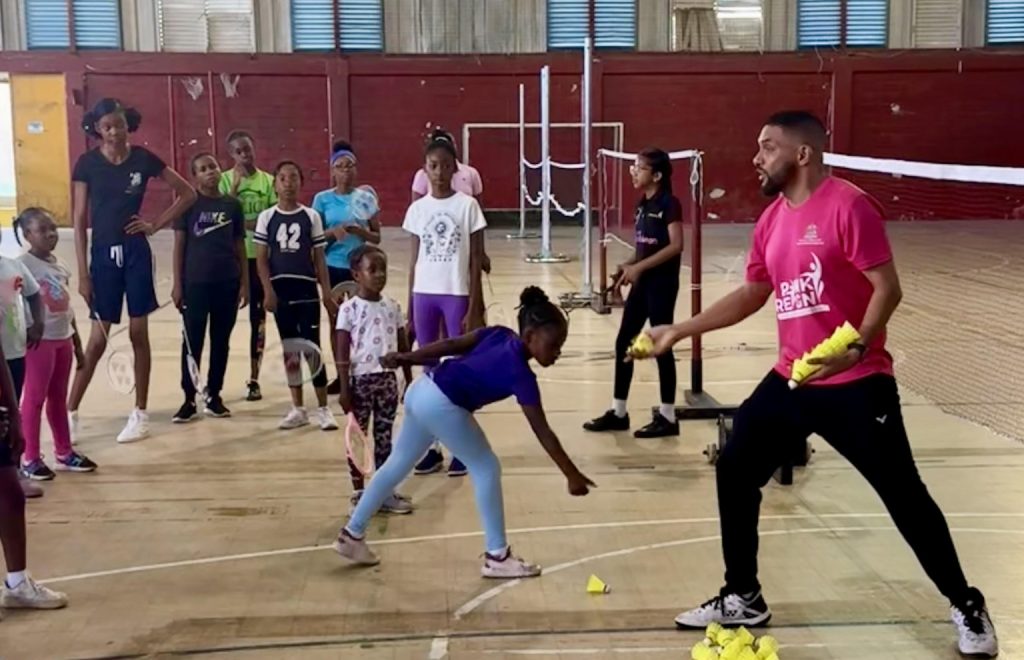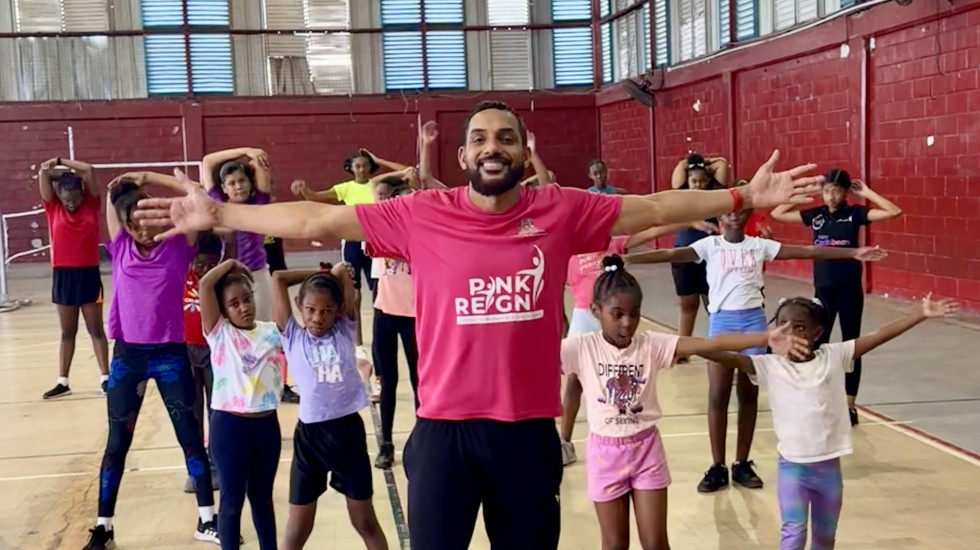TEXT BY BWF
This is the 55th story in our Humans of Shuttle Time series, in which we present the perspectives of those who are involved with badminton at the grassroots level. Anil Seepaul, Shuttle Time National Coordinator with Trinidad and Tobago Badminton Association, speaks about his journey in badminton.
Growing Up Years
I grew up in a low-income rural community in Montrose, Chaguanas, Trinidad, where access to proper sports facilities and structured programs was limited. Our version of sport meant childhood games and playing on the streets. In my community, excelling at sports wasn’t considered a realistic pathway; the emphasis was heavily on academics, learning a trade, or securing a good government job.
Tryst with Badminton
What struck me when I first saw badminton was its unique blend of physical agility, precise control, and mental discipline. I was captivated by the fluid yet powerful movements of the players, the intricate control required to manoeuvre both racket and shuttle, and the dynamic interaction between mind and body. This harmonious balance of physical skill and mental sharpness was unlike anything I had experienced with other sports, instantly creating a lasting connection with badminton.
Relationship with Badminton
My relationship with badminton became life-changing from the moment I first played it. As a child suffering from asthma, badminton was recommended by my doctor, and remarkably, consistent participation completely eliminated my condition. My passion quickly translated into competitive success — I became junior champion of my club, eventually dominating both junior and senior national championships by winning multiple singles, doubles, and mixed doubles titles. Internationally, I proudly represented Trinidad and Tobago, earning several medals at regional and international competitions. I participated at the CAC Games, Pan Am Games, and Commonwealth Games, World Championship. I also reached a career-high world ranking of 54 in mixed doubles.
About 30 years ago, I founded the CRISTARS Badminton Club committed to developing local talent, and since then, the club has produced countless national junior and senior champions. Today, as Technical Director of the Trinidad and Tobago Badminton Association, my goal remains dedicated to fostering excellence and sharing the incredible gift of badminton with future generations.

Memorable Experience
My most memorable experience in badminton was participating in my first Commonwealth Games in Kuala Lumpur, Malaysia. It was an eye-opening moment to witness a nation so deeply passionate about badminton — the energy from the fans and the respect they showed to their athletes was unlike anything I had ever experienced. Beyond the competition, it was inspiring to meet athletes from all over the world, across different disciplines, all united by a shared commitment to excellence and national pride. That experience reminded me of the power of sport to connect people, transcend boundaries, and inspire greatness.
What Badminton Means
Today, badminton means so much more to me than competition—it’s about the children. It’s about creating joy through participation, giving every child the opportunity to be part of something special, regardless of their background, gender, or ability. It’s about inclusion, friendship, and the life lessons that sport teaches—discipline, goal-setting, and the reward of hard work. Nothing compares to the smile on a child’s face when they step on court, interact with others, and begin to dream of proudly representing their country.
Developing Badminton in the Community
In Trinidad, many parents understandably prioritise academics or traditional career paths, often seeing sport as secondary or even a distraction. As a result, getting children involved in consistent training programs can be difficult, especially when competing with the allure of smart devices. But for me, it’s about shifting mindsets—helping parents and children see the long-term value of sport. Badminton builds confidence, discipline, social skills, and a sense of purpose. Little by little, through school visits, community outreach, and fun, structured programmes, we’re creating safe spaces for children to thrive, not just as athletes, but as confident and well-rounded individuals.
Impact of Shuttle Time
Shuttle Time has made a significant impact in our region by introducing badminton at the grassroots level and creating access for all, especially in schools. It provides a safe and inclusive space—particularly for girls—to participate in sport and develop confidence. The programme equips children with strong fundamental skills early on, which has led to increased participation in school competitions and a natural progression into national junior tournaments.
Lessons from Shuttle Time
The biggest lesson I’ve learned as the Shuttle Time Coordinator for Trinidad and Tobago is the power of accessibility and consistency. When you make sport available, inclusive, and fun—especially at the grassroots level—you unlock potential in children who might have otherwise been overlooked. I’ve seen first hand how one simple introduction to badminton can change the trajectory of a child’s life. It has taught me that development is not just about producing athletes, but about shaping character, building confidence, and creating opportunities through sport. The key is staying consistent, engaging communities, and believing in the long-term impact of small beginnings.







